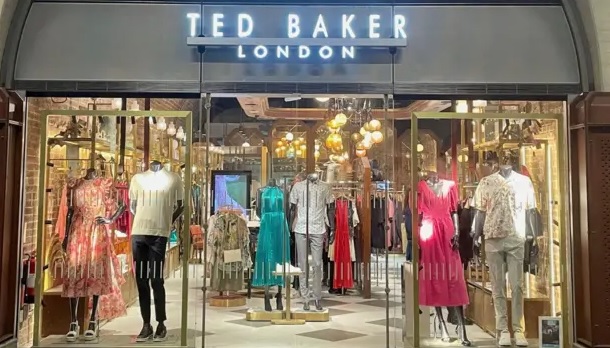
Once-thriving fashion label of the British high street, Ted Baker now stands as a cautionary tale in the fickle world of fashion. Its drop from grace, marked by financial struggles and store closures, serves as a poignant reminder of the challenges faced by established brands in an era of rapid change. But Ted Baker's story is not simply one of individual misfortune; it reflects broader trends that threaten many traditional retailers, particularly in the UK.
The perfect storm
Ted Baker's troubles began in late 2018 when its founder and CEO, Ray Kelvin, was accused of inappropriate behavior, including ‘forced hugging’. The resulting public outcry and Kelvin's subsequent resignation cast a shadow over the brand's image. This incident coincided with broader shifts in consumer behavior and the retail industry. The COVID-19 pandemic further exacerbated Ted Baker's challenges. Lockdowns and remote work led to a decline in demand for formal wear, a core part of Ted Baker's offering. The brand’s traditionally formal style and heavy reliance on brick-and-mortar stores left it ill-equipped to adapt.
Financial troubles deepened as sales dropped. Despite efforts to revitalize its image and embrace e-commerce, Ted Baker struggled to regain its footing. In 2023, it was acquired by Authentic Brands Group but the challenges proved insurmountable. In 2024, all remaining UK stores were closed, marking the end of an era.
Are British brands more susceptible?
While Ted Baker's downfall was influenced by unique circumstances, it also highlights vulnerabilities that many British brands face. The UK retail landscape is notoriously competitive, with high operating costs and a saturated market. The rise of fast fashion and online giants like ASOS and Boohoo has further intensified the pressure. The rise of e-commerce and changing consumer habits have contributed to the decline of traditional brick-and-mortar retail, impacting many established British brands. For example, Debenhams, a once-iconic British department store chain, collapsed in 2020 after failing to adapt to the changing retail landscape.
Brexit has also played a role, impacting supply chains and consumer sentiment. A report by the British Retail Consortium found that Brexit-related costs have added £1.5 billion annually to the UK retail industry. This burden disproportionately affects smaller and independent brands, limiting their ability to invest in innovation and adapt to market shifts.
The e-commerce challenge
Ted Baker's struggles also underscore the difficulties that established brick-and-mortar brands face in transitioning to e-commerce. Take Topshop, another British fashion retailer for example, it struggled to establish a successful online presence and ultimately went into administration in 2020. What’s plaguing them is:
Legacy systems: Many older brands have outdated technology and infrastructure that can hinder their ability to compete online.
Brand identity: Shifting from a physical to a digital presence requires careful consideration of how to maintain brand identity and customer experience.
Competition: The online marketplace is crowded and highly competitive, with established players and new entrants vying for market share.
A McKinsey study found that only 20 per cent of traditional retailers have fully integrated their online and offline channels. This lack of omnichannel capability leaves them at a competitive disadvantage, unable to provide the seamless shopping experience that consumers now demand.
The story of Ted Baker is a complex one, with no easy answers. It serves as a warning to all brands, regardless of origin, that complacency and failure to adapt can be fatal. The challenges of a changing retail landscape, coupled with internal missteps, proved too much for this once-beloved fashion label. While British brands face particular hurdles, they are not alone in struggling to navigate the new retail reality. Those that survive and thrive will be the ones that embrace change, innovate, and connect with consumers in meaningful ways.












